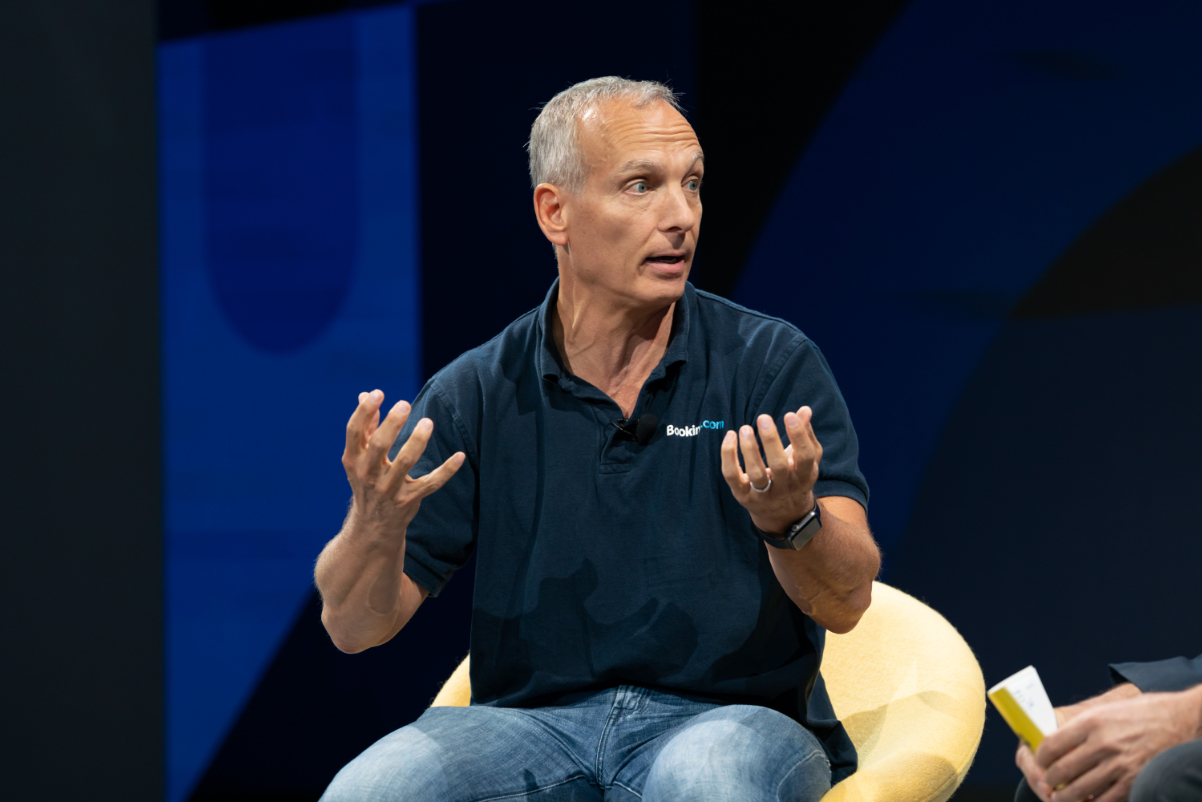Skift Take
CEO Glenn Fogel is focused on making Booking Holdings apps easier for consumers to use. Apparently he's doing something right.
The post-pandemic consumer travel bug is still alive and well, leading to the highest amount of quarterly revenue ever for Booking Holdings.
And more of those bookings at the online travel giant are happening via Booking’s mobile apps than even before the pandemic, so the company plans to strengthen its investment in that tech to capture as many future bookings as possible.
Executives shared some of their plans during an earnings call Wednesday evening for Booking Holdings, which owns the brands Booking.com, Priceline, Agoda, Kayak and more.
Revenue for Booking Holdings last quarter was $6.1 billion, an increase of 29 percent year-over-year, while net income increased 117 percent to $1.7 billion.
“While there continues to be uncertainty around the near-term macroeconomic environment, we are as confident as ever in the long-term growth of travel and in the opportunities ahead for our company,” said Glenn Fogel, CEO of Booking, during the call.
Tech Investment
There were 240 million room nights reserved through Booking apps in the third quarter of 2022 — 8 percent higher than in 2019 — and 45 percent of them happened through the mobile app.
“The mobile app is an important platform as it allows us more opportunities to engage directly with travelers, and ultimately, we see it as the center of our connected trip vision,” Fogel said.
The “connected trip” is Booking’s aim to basically cross-sell and upsell a wider variety of packages to existing customers through its multiple products. Executives have said they believe that is key to continued recovery post-pandemic.
The continued tech investment includes strengthening its offering of airline ticket bookings on Booking.com. That business was up 235 percent in the third quarter compared to 2019. Over 20 percent of all flight bookings are first-time Booking.com customers. The company is also continuing to work on integrating ground transportation options.
Fogel said the transport options are not yet where he wants them, but he is optimistic.
“Our flight product is not yet what I would say is good as it should be,” he said. “We continue to improve upon it, make it better than it’s been in the past, providing the features that some of our competitors offer up to consumers that we don’t do yet that we want to offer. So there’s a lot of upside left in this.”
The 4th Quarter
Some analysts expressed concern going forward about how a potential economic downturn could affect business, but Booking executives expect business to continue performing better than in 2019.
“While there continues to be uncertainty in the near term, our comments for the quarter make the assumption that room night growth for the fourth quarter will be about 10 percent above 2019, which is in line with levels of growth we’ve seen over the last three months,” said David Goulden, Booking CFO, during the call.
Despite higher booking prices generally, Booking has not seen customers reserving cheaper hotels or reducing the length of their trips, Fogel said. Still, as Booking seeks to increase its post-pandemic business, he said he sees value in keeping prices as low as possible.
“When thinking about addressing our customers’ need for value, we believe providing attractive prices on accommodations is very important,” Fogel said.
The Daily Newsletter
Our daily coverage of the global travel industry. Written by editors and analysts from across Skift’s brands.
Have a confidential tip for Skift? Get in touch
Tags: booking holdings, booking.com, earnings, mobile apps, online travel, online travel agencies, online travel newsletter, technology, travel tech
Photo credit: Glenn Fogel, CEO of Booking Holdings, pictured here speaking at Skift Global Forum in September 2022 in New York, is keen on more tech investment. Neil van Niekerk / Skift

